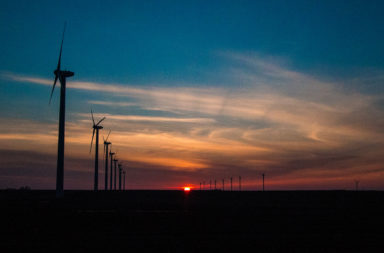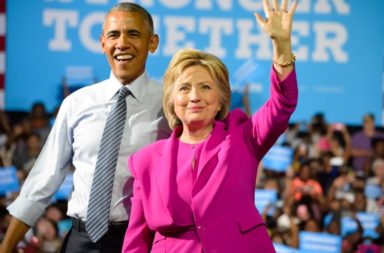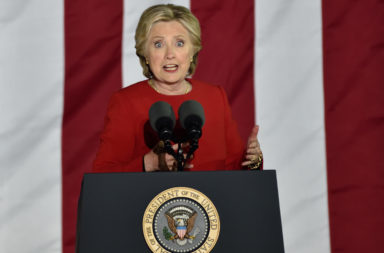Hillary Clinton is the Democratic Party nominee for president and the first woman to ever claim that title in the history of the United States.
She claimed victory after clinching primaries in New Jersey, New Mexico, and South Dakota with a Tuesday night speech. Sanders, meanwhile, won Montana and North Dakota.
Then, Wednesday morning in the U.S. news outlets called her the winner of California — the largest and most racially diverse state in the country — by a comfortable margin of 56 percent to 43 percent with most precincts reporting.
Clinton spoke in triumphant terms about breaking the ultimate glass ceiling.
In her speech she also praised Bernie Sanders and the strength of the debate they had over trade, Wall Street, gun control, and the other issues that defined their race.
She also started laying the groundwork to consolidate support by courting his voters, whom she will need to win in November.
The diversity of California, which is 28 percent Hispanic and also contains large portions of other racial minorities as well, certainly helped Clinton. Sanders has been way underperformed with minorities, especially African-Americans.
Clinton continued that dominance in California.
But she also dominated in some other population centers. San Francisco, for instance, is the kind of place you may have expected a solid Sanders win. Not so:
Technically there is one last primary, next Tuesday in Washington, D.C., which Clinton is expected to win easily.
But, as the Associated Press reported late Monday, Clinton’s lead among superdelegates puts her above the 2,382 she needs to clinch the nomination.
She has 2,184 won through primaries to Sanders’ 1804, according to the Associated Press. Adding in superdelegates – elected officials and party regulars who are free to vote for whomever they want – adds another 571 to her total.
The fact that she’ll need some of those superdelegates to put her above 2,382 is already stoking anger among Sanders supporters and others who argue it’s undemocratic.
In fairness: it is worth noting that she led Sanders by more than 3 million votes overall, so there’s no question of her legitimacy in terms of the popular vote (the guy above is also factually mistaken — she only needs a fraction of the superdelegates to put her above 2,382).
She won America’s largest and most diverse states, including New York, Florida and Texas. She also won other key battlegrounds, such as Ohio, Virginia, North Carolina, and Pennsylvania.
If Sanders had won California he could at least make a stronger case for his candidacy, but there’s no way superdelegates will rush to him after Clinton’s fairly decisive victory.
At this point, Sanders is likely hoping that the FBI will announce a criminal indictment over Clinton’s use of a private email server while at the State Department, but experts say that’s highly unlikely.
He also wants to influence the official party platform and potentially even change the way primaries are conducted by, for instance, allowing independents who have not declared themselves Democrats to vote.
Apparently even some of his own aides want him to leave the race.
But Sanders has promised to continue through D.C. and all the way to the convention in July.
Image: Twitter





